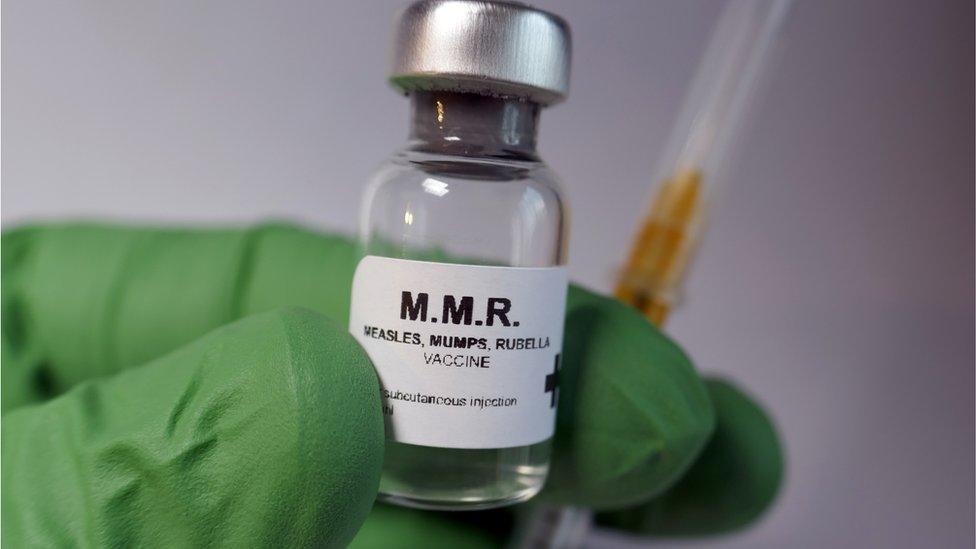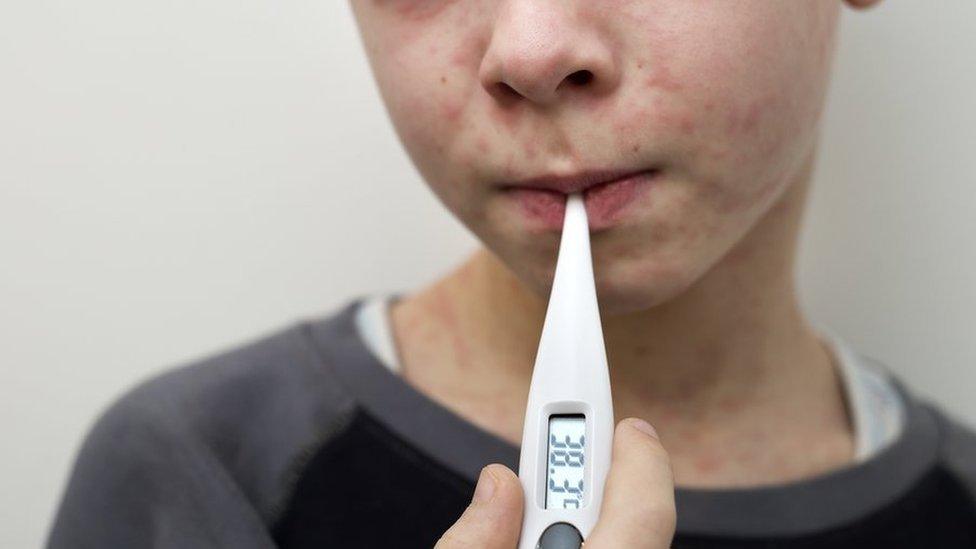Bristol film tackles MMR vaccine myths which spread 'fear'
- Published
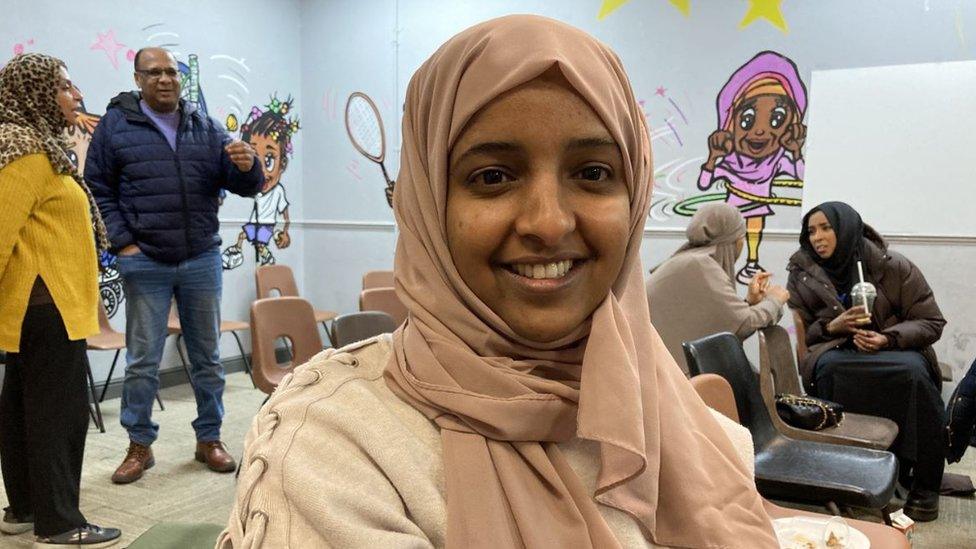
Amira Ahmed said a lot of women in her community were "afraid" to allow their children to get the vaccine
A Somali mother has said misinformation around the MMR vaccine spread "fear" throughout her community.
Bristol's MMR vaccination rates are particularly low among Somali, Eastern European and Chinese communities, as well as areas of high deprivation.
In collaboration with the NHS, Bristol's diverse community has launched a campaign video, dispelling common myths around the MMR jabs.
The campaign aims to boost MMR vaccines across areas with low vaccine uptake.
There are currently no confirmed cases of measles in Bristol but health bosses remain concerned over a national outbreak.
The Bristol, North Somerset and South Gloucestershire (BNSSG) integrated care board has helped produced the film 'Let's Talk about MMR' to provide diverse communities with accurate information.
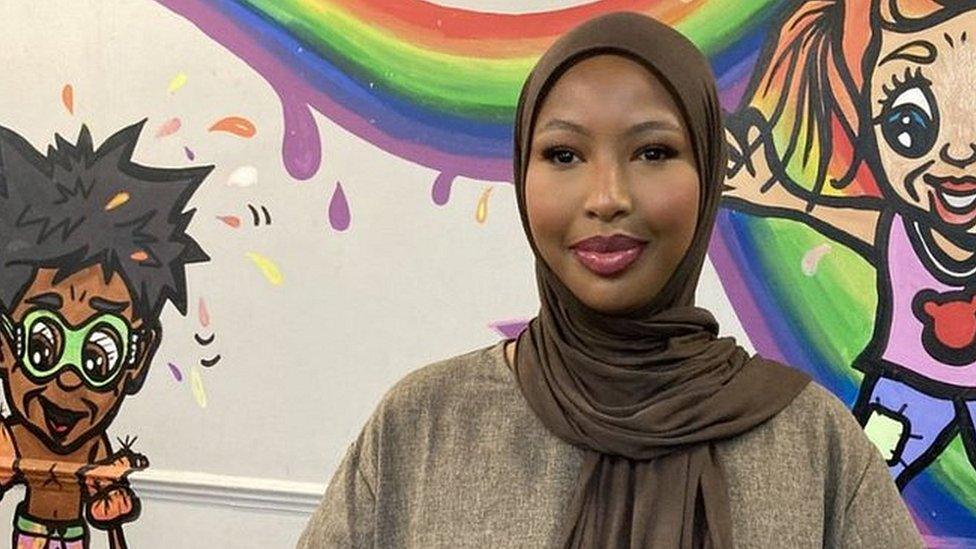
Salma Aideed said the film had received a positive response from the community
Salma Aideed, who presented the film, said: "Especially in the Somali community, as well as the BAME background community, there are a lot of people that haven't had the MMR vaccine due to hearing myths and studies that were found to be untrue.
"People are now able to access the accurate information so they can make informed decisions, pass on the relevant information, and get vaccinated to help prevent the virus spreading."
Somali mother, Amira Ahmed, attended the film premier on Thursday at Easton Leisure Centre, and said she now feels confident in the vaccine.
"So much information was spread that caused a lot of fear in our community," she said.
"Now I can go back to them and answer their questions, clear up the misconception."
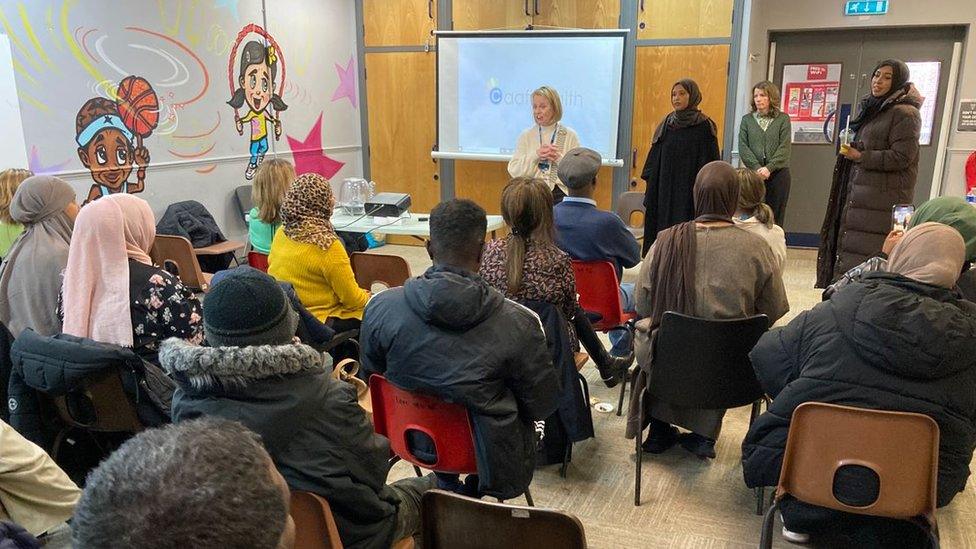
The film premiered on Thursday at Easton Leisure Centre, and will soon be available online in multiple languages
According to the NHS, external, measles is a highly contagious virus that spreads easily among those who are unvaccinated, and in some cases can be very serious.
To stop the virus spreading, 95% uptake is needed for herd immunity, but only 84.3% of Bristol's five-year-olds have received both vaccinations.
There has been low vaccine up take in some communities after Andrew Wakefield's 1998 research alleged a link between the MMR vaccine and autism, which has since been discredited.
There have been 216 confirmed cases of measles across the West Midlands since October. There have also been smaller measles outbreaks in London.
Prof Dame Jenny Harries, chief executive of UK Health Security Agency, said: "Colleagues across the West Midlands have worked tirelessly to try to control the outbreak, but with vaccine uptake in some communities so low, there is now a very real risk of seeing the virus spread in other towns and cities."
Julie Northcott, Bristol City Council's deputy director of public health, added: "Any opportunity that anybody has to have their vaccine now before cases come to Bristol, which we anticipate they will, it's a real call to action now to check your status and get your vaccine."

Follow BBC West on Facebook, external, X, external and Instagram, external. Send your story ideas to: bristol@bbc.co.uk , external
Related topics
- Published3 April 2019
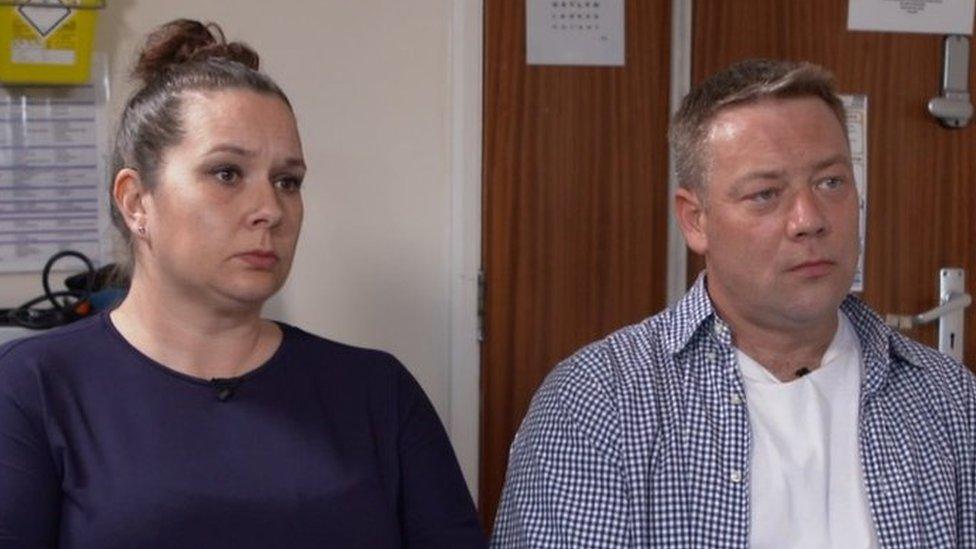
- Published14 February 2020
